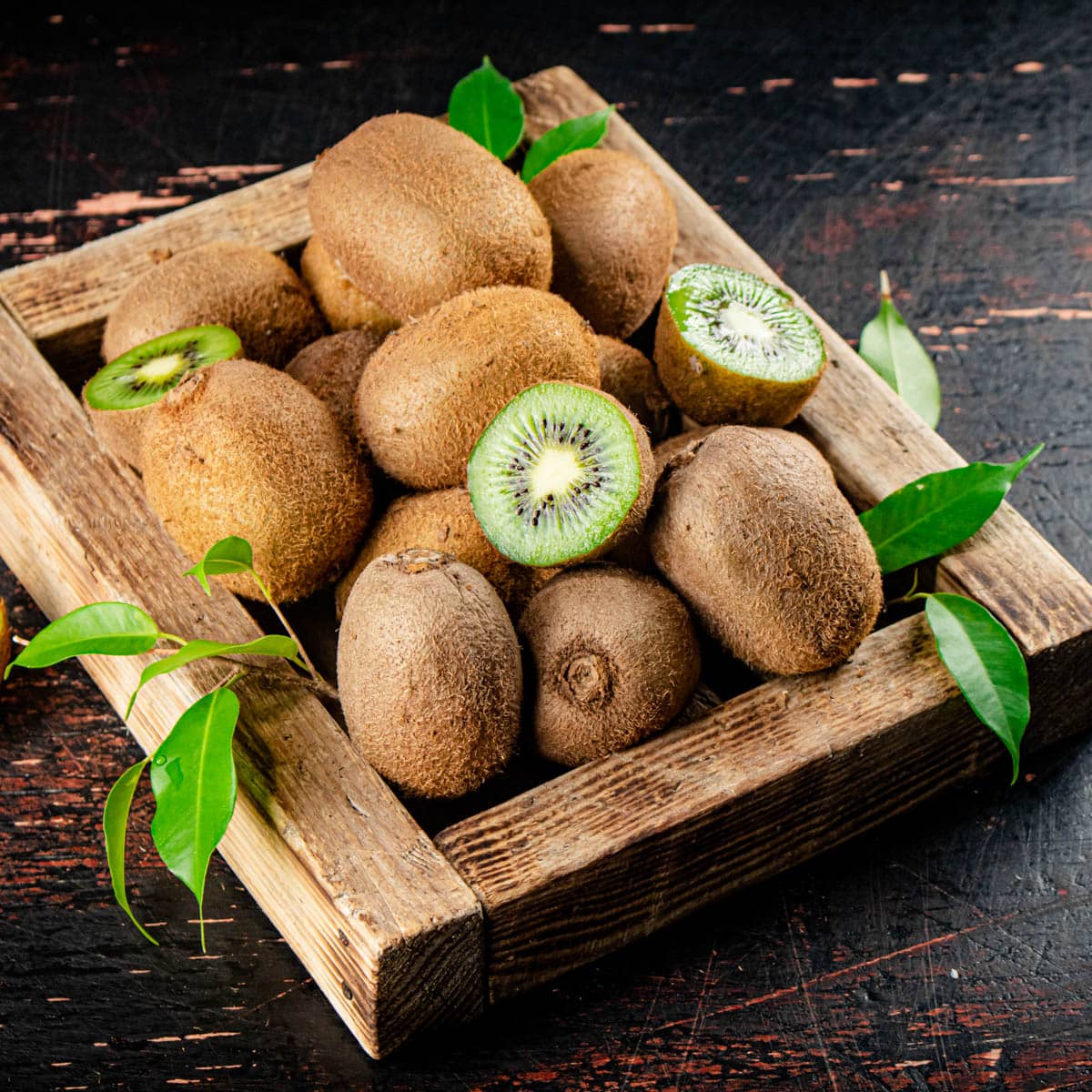How to Tell If Kiwi Is Ripe
The kiwi fruit is a delicious treat that can be enjoyed fresh or canned. However, if you want to enjoy your kiwi fruit at its best, it is important to know when the kiwi is ripe.
There are three ways to tell if your kiwi fruit is ready to be eaten: by smell, by taste, and by color.

3 ways to tell if a kiwi is ripe
There are three ways to tell if a kiwi is ripe: by the color and shape of the fruit, how soft it feels, and the smell of the fruit.
1. Check the Color
The kiwi should be a rich, deep green color. If it is pale or yellow in color, the kiwi is likely not ripe and will not taste as good.
When purchasing a kiwi from the store you should look for one that is plump and firm with no brown spots on it; furthermore, you should check its stem end to make sure there are no signs of spoilage or moldiness before purchasing it.
2. Check the Firmness
Gently squeeze the kiwi with your thumb and fingers if it gives in a little, it is probably just the right amount of ripe.
Overripe kiwis tend to give in and feel mushy when squeezed; unripe kiwis are hard like rocks and don’t give in at all when squeezed.
3. Give It a Smell
Sniff the kiwi before you bring it home to determine if it is ripe. If the kiwi smells sweet and fragrant, it is ready to eat; if not, leave it on the counter until it reaches peak ripeness.
If the kiwi smells sour or off, do not purchase it as it may be past its prime and unsuitable for consumption.
What are the best ways to ripen kiwi fruit quickly?
1. Place the kiwi in a paper bag with other fruits that produce ethylene, such as bananas, apples, and avocados.
2. Keep the bag next to these fruits and out of direct sunlight on your countertop for several days until they are ripe enough to eat.
3. You can also put them in a bowl away from direct sunlight on your countertop and check on them every few days until they ripen enough to eat (this may take longer than in the paper bag).
If you need them to ripen faster still, use a combination of both methods – adding more ethylene-producing fruits into the mix will speed up the process even more quickly than just one method alone!
How can you store kiwi to keep it ripe?
Chill the kiwi immediately after picking it, wrap it in plastic vented bags, and store it in the refrigerator at a temperature of 31-32℉.
If you plan to eat the fruit within a few days, keep it out of the refrigerator and on your kitchen counter at room temperature; otherwise, keep it in the freezer for extended storage time. For more information check out my post on How to Store a Kiwi.
What are the benefits of eating ripe kiwi?
1. Higher Vitamin C Content
Eating ripe kiwis increases the vitamin C content because the kiwis contain high amounts of this nutrient.
By eating ripe kiwis, you can benefit from their health-promoting properties such as helping to maintain healthy skin, providing antioxidant and anti-inflammatory effects, and helping to prevent certain types of cancer.
2. Increased Antioxidants
Eating ripe kiwi increases antioxidants due to its high content of vitamins A, E and C. These vitamins act as powerful antioxidants that help reduce free radicals in the body and prevent oxidative stress that can lead to health problems such as cardiovascular disease and cancer.
3. Improved Texture and Flavor
Eating ripe kiwi can improve the texture and flavor of the fruit by breaking down its cell walls. This allows for greater absorption of nutrients such as vitamin C and potassium.
By eating ripe kiwi, you are able to enjoy a smoother, softer texture as well as a more flavorful taste than if you had eaten an unripe kiwi. For some great tips on how to cut a kiwi or how to peel a kiwi check out my post with detailed instructions.
4. Greater Digestibility
Eating ripe kiwi can increase the digestibility of food due to its high levels of enzymes. These enzymes help break down complex carbohydrates, proteins, and fats into smaller molecules that are easier for the body to absorb.
As a result, eating ripe kiwi can improve digestion by helping the body digest food more efficiently and effectively. It may also reduce discomfort associated with indigestion or bloating due to reduced stomach acid production.
Another great fruit to try with kiwi is a pomegranate, find out how to tell when a pomegranate is ripe!
Conclusion
Selecting a ripe kiwi is simple with these tips, but for more in-depth advice on a variety of fruits, our post on fruit ripeness is your go-to resource for making informed choices in the produce section.

Online Cooking for Beginners Course